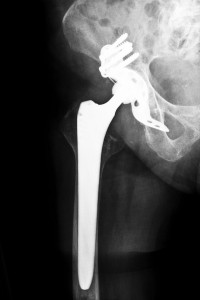
The hip replacement lawyers at Arkansas Attorney Group are reviewing possible lawsuits for patients who experienced complications after receiving a Biomet M2 or M2A Magnum hip system, which may have been caused by defects in design with the artificial implant. Compensation may be available for recipients via a Biomet M2A Magnum hip lawsuit due to the manufacturer’s failure to properly test the effects of the metal-on-metal hip replacement system or give adequate warnings of the risks that the implant may loosen or fail within a few years following surgery. All claims are reviewed by our member Arkansas Biomet Hip Replacement attorneys who thoroughly investigate each case to seek financial recovery.
Problems with Biomet Hip Replacement Systems
The Biomet M2A-Magnum Hip is a metal-on-metal hip implant replacement system that has been implanted in recipients throughout the U.S. Although it was designed for younger, active patients, reported issues suggest that the hip implant may be at risk for failure within a few years following surgery.
While many hip implants consist of parts made of metal and plastic, the Biomet Magnum has three components that are all metal, an acetabulum cup, a metal femoral head, and a metal taper insert. When the metal components rub against each other, microscopic metal shavings can be released into the hip joint, which could cause loosening of the implant, inflammation, and other problems associated with metal poisoning. Possible signs of Biomet Magnum hip complications could include:
- Swelling and tissue damage
- Unexplained hip pain
- Pseudotumors
- Implant loosening
- Difficulties with walking or standing
- Additional revision surgeries
A surprising number of complaints from recipients throughout the United States have reported suffering problems with the Biomet hip implant replacement, often involving dislocation, loosening, or failure of the implant because of the design of the device. Although most hip implants are expected to last 15 years or more, many patients have required revision surgery within a few years following the initial implantation to replace or fix problems with a Biomet M2A Magnum hip implant. According to allegations of Biomet M2A Magnum hip lawsuits, device manufacturers knew about these problems, but they continued to market it as a safe and effective implant. Instead of issuing a recall for the Biomet Magnum hip replacement system, it was marketed as having advantages over other hip replacement systems.
Arkansas Biomet Hip Replacement Attorneys
It has been suggested by research that metal-on-metal hip replacements like the Biomet M2A Magnum are not any more effective than traditional implants and also have an increased risk of revision surgery because of the large amounts of metal debris that the implant generates. It unfortunately seems that Biomet placed a priority for profits over consumers’ safety and as a result, injury claims as well as class action lawsuits are being evaluated by member Arkansas Biomet Hip Replacement attorneys at Arkansas Attorney Group on behalf of Biomet M2 or M2A Magnum hip replacement recipients. If you or a loved one has experienced complications following implantation of a Biomet hip implant, contact Arkansas Biomet Hip Replacement attorneys today to determine if you have a potential lawsuit claim.





